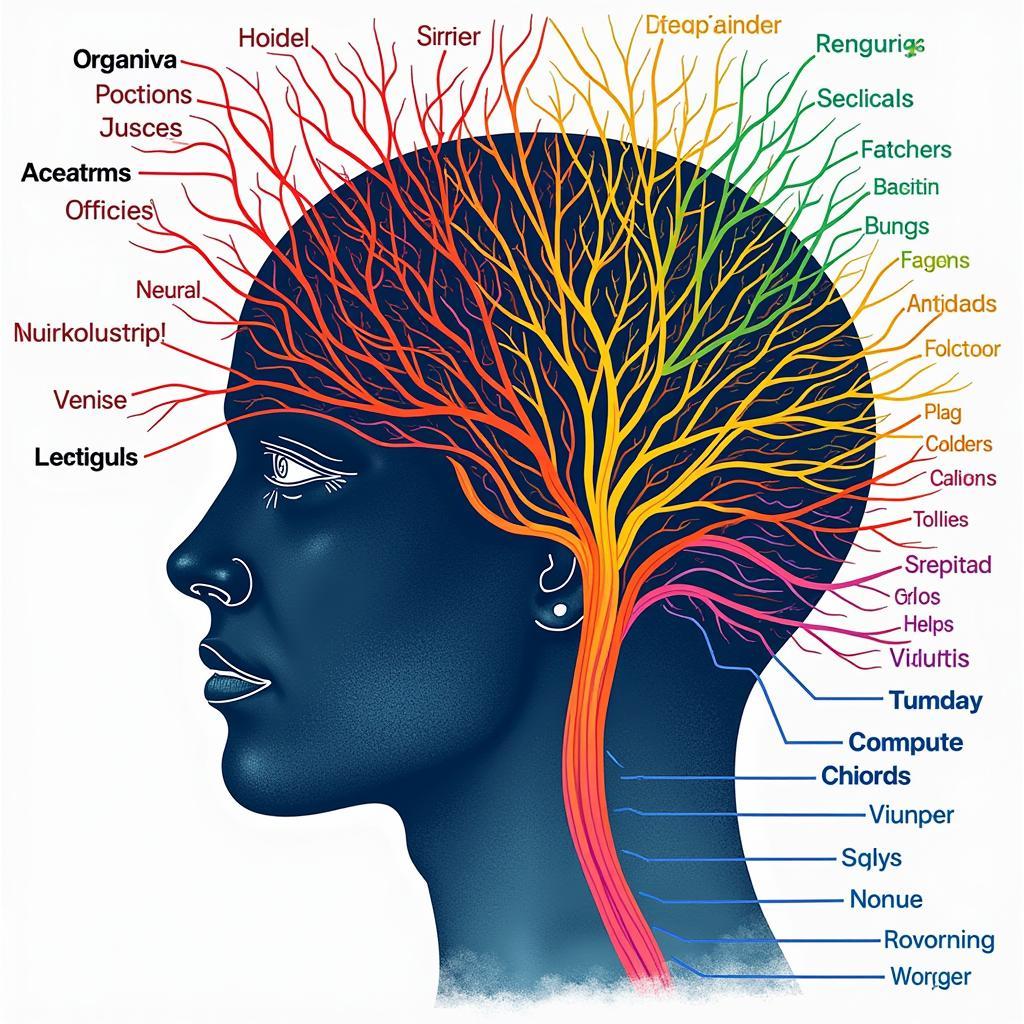The power of words has been recognized for centuries, but only recently has science begun to unravel the mysteries behind how words can influence our thoughts, feelings, and even reality itself. This exploration delves into the fascinating research surrounding the power of words, examining their impact on various aspects of our lives.
The Science Behind the Power of Words
Research suggests that words are far more than mere sounds or symbols; they are potent triggers that activate complex neural pathways in our brains. When we hear or read words, specific areas associated with memory, emotion, and even physical sensation light up, demonstrating the profound connection between language and our lived experience.
 Brain with words highlighting neural pathways
Brain with words highlighting neural pathways
For instance, studies have shown that using positive affirmations can actually rewire the brain to reduce stress and improve self-esteem. Conversely, negative self-talk can create a vicious cycle of anxiety and low mood. These findings underscore the profound impact words have on our mental and emotional well-being.
Words That Heal: The Role of Language in Therapy
The power of words takes center stage in various therapeutic approaches. Talk therapy, for example, relies heavily on the ability of language to process trauma, reframe negative thought patterns, and facilitate emotional healing. Therapists carefully choose their words to guide clients toward greater self-awareness and positive change, demonstrating the power of language as a tool for transformation.
Hypnosis offers another compelling example of the power of words. By using specific language patterns and suggestions, hypnotherapists can access the subconscious mind, helping individuals overcome phobias, break unhealthy habits, and even manage pain.
Beyond the Individual: The Influence of Words on Society
The power of words extends far beyond individual experiences, shaping public discourse, influencing political outcomes, and shaping societal norms. Propaganda, advertising, and even everyday conversations demonstrate how language can be used to persuade, manipulate, and even incite violence.
Understanding the persuasive power of rhetoric and the potential for language to be used for both good and ill is crucial in navigating our increasingly complex world. Media literacy, critical thinking skills, and an awareness of the subtle ways language shapes our perceptions are essential tools for navigating the persuasive landscape of the 21st century.
Unlocking the Secrets: Continued Research on the Power of Words
While we’ve made significant strides in understanding the power of words, much remains to be explored. Researchers continue to investigate the intricate relationship between language and consciousness, exploring how words influence our perception of time, our experience of empathy, and even our understanding of reality itself. As technology advances, we can expect even more groundbreaking discoveries in the field of neurolinguistics, shedding light on the incredible power of words to shape our individual and collective futures.
Conclusion
From the quiet affirmations we whisper to ourselves to the grand narratives that shape our cultures, words hold immense power. As research continues to illuminate the profound ways language influences our brains, emotions, and behaviors, we gain a deeper appreciation for the responsibility that comes with wielding this potent tool. By harnessing the power of words for good, we can foster healing, inspire positive change, and create a more compassionate and understanding world.
Need help with research? You can find more resources on user experience research here: user experience researcher resume.